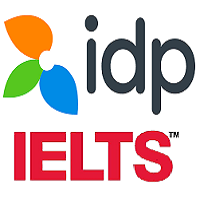- Home
- IDP
IELTS
IELTS
IELTS Test Preparation in Nepal
IELTS (The International English Language Testing System) measures the language proficiency of people who want to study or work where English is used as a language of communication. It uses a nine-band scale to clearly identify levels of proficiency, from non-user (band score 1) through to expert (band score 9).
IELTS Academic or IELTS General Training
IELTS is available in: Academic – for people applying for higher education or professional registration, and General Training for those migrating to Australia, Canada and the UK, or applying for secondary education, training programmes and work experience in an English-speaking environment. Both versions provide a valid and accurate assessment of the four language skills: listening, reading, writing and speaking.
Fair to all
IELTS treats all test takers with the utmost fairness and respect by actively avoiding cultural bias, and accepting all standard varieties of native-speaker English, including North American, British, Australian and New Zealand English.
Widely available
IELTS is available at more than 1,600 locations worldwide, including more than 50 locations in the USA.
IELTS (International English Language Testing System)
The International English Language Testing System (IELTS) is the basic language proficiency test. The test is designed to assess the language ability of candidates who want to study or work where English is the language of communication. It is jointly managed by university of Cambridge ESOL Examinations, the British Council and IDP.
There are two versions of the IELTS: The Academic Version and the General Version.
The Academic Version is intended for those who want to enroll in universities and other institutions of higher education and for professionals such as medical professionals and nurses who want to study or practice.
The General Training Version is intended for those planning to undertake non-academic training or employment, for immigration purposes.
IELTS is accepted by almost all Australian, British, Canadian, Irish, New Zealand and more than 1800 US academic institutions. It is the only acceptable English test for immigration to Australian and also accepted by UK and Canada.
Test format for Listening
30 minutes
You will listen to four recordings of native English speakers and then write your answers to a series of questions.
Recording 1 – a conversation between two people set in an everyday social context.
Rec. 2 – a monologue set in an everyday social context, e.g. a speech about local facilities.
Recording 3 – a conversation between up to four people set in an educational or training context, e.g. a university tutor and a student discussing an assignment.
Rec. 4 – a monologue on an academic subject, e.g. a university lecture.
Assessors will be looking for evidence of your ability to understand the main ideas and detailed factual information, the opinions and attitudes of speakers, the purpose of an utterance and evidence of your ability to follow the development of ideas.
Test format for Reading
60 minutes
The Reading component consists of 40 questions, designed to test a wide range of reading skills. These include reading for gist, reading for main ideas, reading for detail, skimming, understanding logical argument and recognising writers’ opinions, attitudes and purpose.
IELTS Academic test – this includes three long texts which range from the descriptive and factual to the discursive and analytical. These are taken from books, journals, magazines and newspapers. They have been selected for a non-specialist audience but are appropriate for people entering university courses or seeking professional registration.
IELTS General Training test – this includes extracts from books, magazines, newspapers, notices, advertisements, company handbooks and guidelines. These are materials you are likely to encounter on a daily basis in an English-speaking environment.
Test format for Academic Writing
60 minutes
IELTS Academic test Topics are of general interest to, and suitable for, test takers entering undergraduate and postgraduate studies or seeking professional registration. There are two tasks:
Task 1 – you will be presented with a graph, table, chart or diagram and asked to describe, summarise or explain the information in your own words. You may be asked to describe and explain data, describe the stages of a process, how something works or describe an object or event.
Task 2 – you will be asked to write an essay in response to a point of view, argument or problem.
Responses to both tasks must be in a formal style.
IELTS General Training
Topics are of general interest. There are two tasks:
Task 1 – you will be presented with a situation and asked to write a letter requesting information, or explaining the situation. The letter may be personal, semi-formal or formal in style.
Task 2 – you will be asked to write an essay in response to a point of view, argument or problem. The essay can be fairly personal in style.
Test format – Speaking
11–14 minutes The speaking component assesses your use of spoken English. Every test is recorded.
Part 1 – the examiner will ask you general questions about yourself and a range of familiar topics, such as home, family, work, studies and interests. This part lasts between four and five minutes.
Part 2 – you will be given a card which asks you to talk about a particular topic. You will have one minute to prepare before speaking for up to two minutes. The examiner will then ask one or two questions on the same topic.
Part 3 – you will be asked further questions about the topic in Part 2. These will give you the opportunity to discuss more abstract ideas and issues. This part of the test lasts between four and five minutes.
THE FOLLOWING INSTITUTIONS PROVIDE IELTS EXAM PREPARATION IN NEPAL :
© 2020 All Rights Reserved


